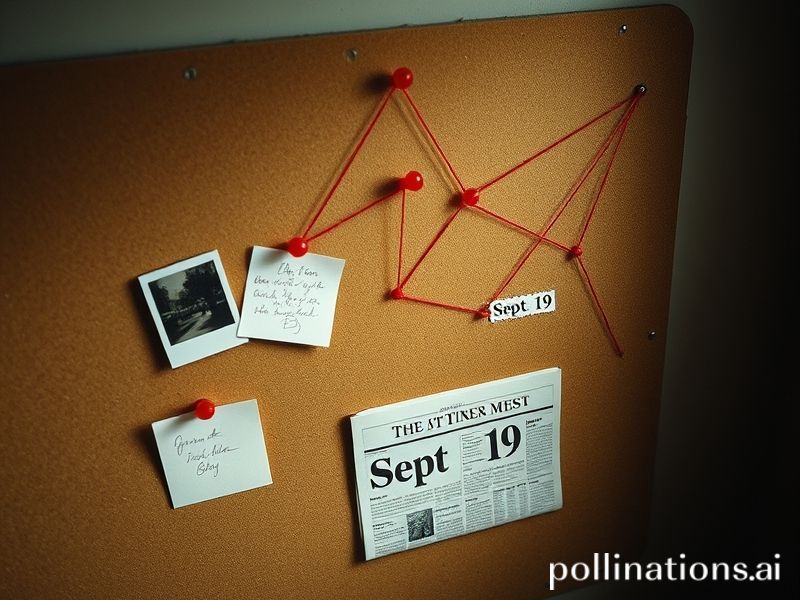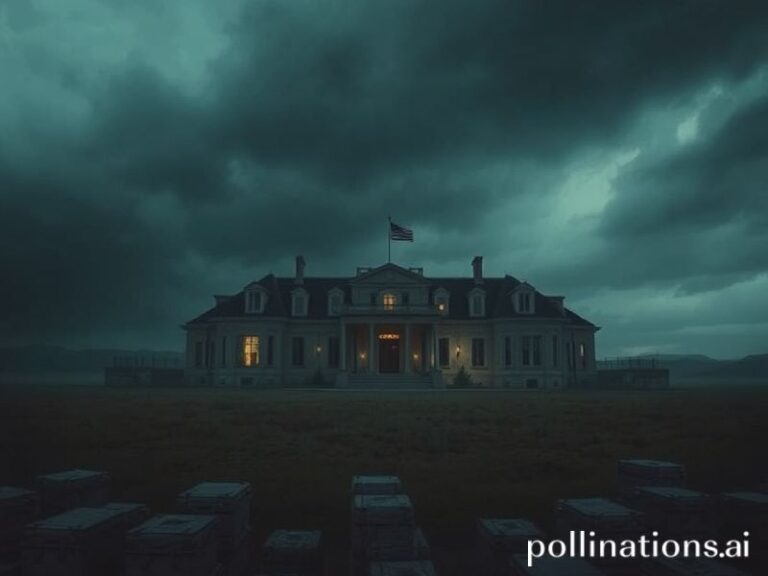Global Powers Vie Over a Grid: How a NYT Connections Hint on Sept 19 Became the World’s Smallest Trade War
The planet’s favorite daily crossword-adjacent guilt trip, Connections, coughed up another grid on September 19, and—as usual—half the world pretended to be above such American parlor games while secretly screenshotting the answers. From Lagos to Lisbon, commuters swiped through the pastel puzzle, convinced that grouping four varieties of “things that melt” was a more productive use of their metro ride than, say, averting climate catastrophe. The algorithmic gods at The New York Times, who have already monetized our collective need to feel momentarily clever, were kind enough to leave a breadcrumb trail of hints. Humanity, in turn, responded with the solemnity of a UN Security Council vote and the collective attention span of a fruit fly in heat.
Internationally, the “hint” for September 19 became its own micro-currency. On Telegram channels in Tehran, moderators traded clues like embargoed oil futures. In Seoul, a K-pop fan account ran a poll: “Which Connections category is Oppa?” (Oppa turned out to be SLIPPERY THINGS, obviously.) Meanwhile, EU regulators—unable to break up American tech giants—settled for drafting guidance on “responsible hint-sharing” that was promptly ignored by everyone except the Swedish Minister of Culture, who posted her score with the caption “Lagom.”
The broader significance? A single puzzle, birthed in a Manhattan skyscraper, now outranks most bilateral trade agreements in daily mindshare. Analysts at obscure think tanks in Brussels have begun modeling “hint virality” as a leading indicator of soft-power erosion. Their working paper—leaked, naturally, on Discord—argues that every time a French intellectual uses an English pun to solve the yellow category, the Académie Française loses a micron of sovereignty. The paper’s title, dripping with academic self-loathing, is “Lexical Imperialism in the Age of Gamified Dopamine.”
Of course, the September 19 grid carried geopolitical Easter eggs. One group featured “Countries that used to be empires,” which sent Twitter’s remaining historians into a froth. Was Austria-Hungary close enough to “Austria” to count? Did the Ottomans qualify, or had the puzzle masters decided that Turkey’s current inflation rate rendered it post-imperial by default? The debate spilled onto Reddit’s r/AskEurope, where a user named u/TrotskyButChill claimed the category was proof of American “decline-coded projection.” Someone replied with a GIF of a bald eagle shrugging; NATO stock markets remained unmoved.
Meanwhile, in the Global South, the hint economy has spawned cottage industries. Kenyan freelancers now sell daily “spoiler alerts” via M-Pesa for ten cents a pop—cheaper than airtime, pricier than dignity. In Buenos Aires, where inflation makes every peso a punchline, a rogue economist tracks the black-market exchange rate between ARS and Connections hints. Last week, a yellow-category leak traded at 1,200 pesos, briefly outperforming the blue dollar. The government, ever resourceful, blamed “speculative wordplay” and threatened to regulate anagrams.
Back at The Times, the puzzle editors insist their intent is pure entertainment. Sources say they craft each hint in a glass-walled conference room nicknamed “The Ministry of Mild Distraction.” A leaked whiteboard photo reveals tomorrow’s tentative title: “Things That Explode, but Gently.” Somewhere, a UN disarmament negotiator sighs and bookmarks the page.
In the end, the September 19 Connections hint is less a linguistic diversion than a mirror. It reflects our planet’s twin addictions—to order and to procrastination. While glaciers calve and supply chains unravel, we huddle over glowing rectangles, desperate to prove we can still impose meaning on four random words. The joke, delivered with impeccable cosmic timing, is that we already have: we’ve connected ourselves, one smug green square at a time, into a single, distracted species hurtling toward the next puzzle—and the next catastrophe—with equal enthusiasm.







